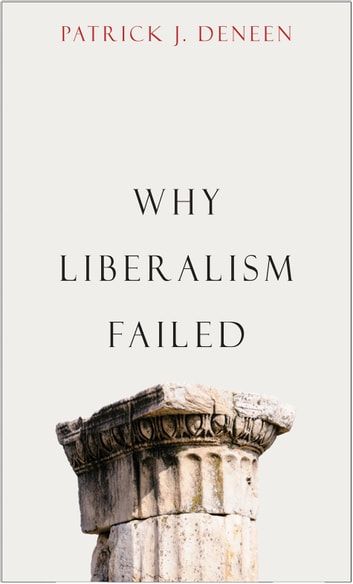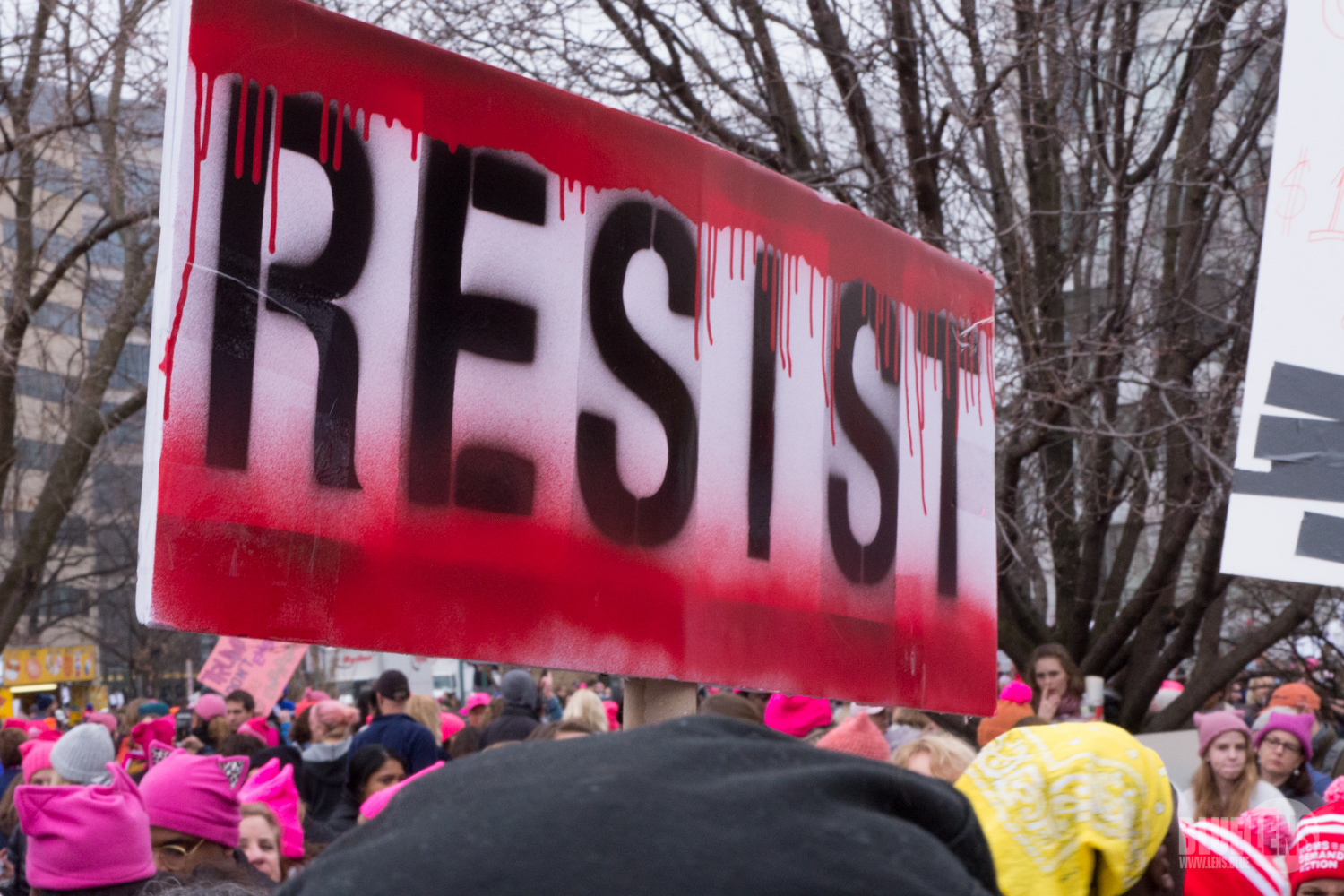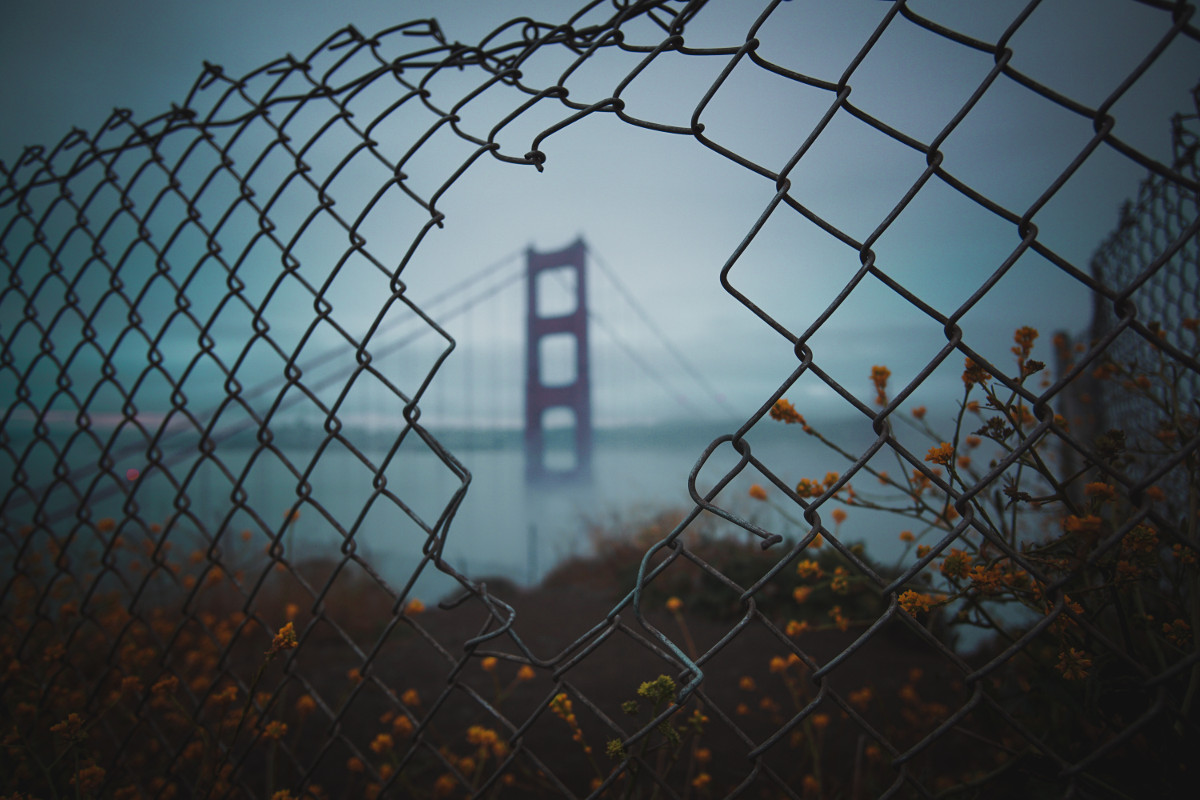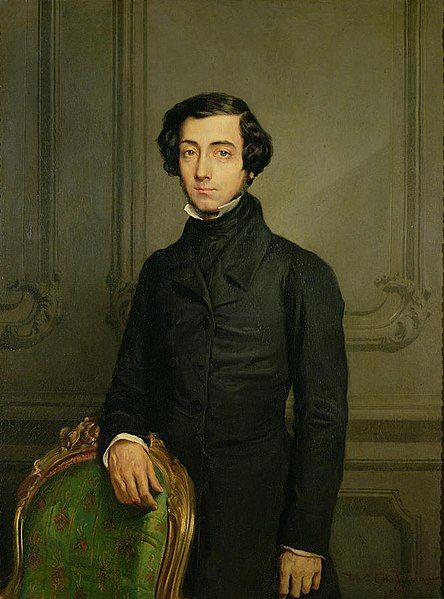Art and Culture
Has Liberalism Failed?
Every regime hits peaks and troughs. What is the evidence that this present crisis is terminal failure, rather than another periodic setback?

Fascism failed. Communism failed. The last of the three major political philosophies that clashed through the twentieth century—Liberalism—still stands. It won, whether by force of arms or argument, but is now in retreat. Regimes once liberal have recently become authoritarian; more ominously, Americans have become impatient with liberal procedures and compromises. Many of its proponents argue that these setbacks are temporary, problems to be solved by certain adjustments of policy, rhetoric, or leadership. In Why Liberalism Failed, however, Patrick Deneen argues forcefully that the problems are congenital. Liberalism was bound to fail in the end as a politics because it was doomed from the beginning by its philosophy.

In this dire judgment he agrees with a whole host of present critics. Notable among them are resurgent global rivals to liberalism’s postwar world-order: Xi Jinping’s China, Putin’s Russia, Khameini’s Iran. But the critics are also domestic. In universities sustained by liberal values, ironically, postmodernists have been declaring liberalism a failure since at least 1968—sometimes for the same reasons as the foreign rivals. Deneen agrees with their shared conclusion, as his title assumes, but his explanation is his own. Yet before explaining why liberalism failed, he must first show skeptics that it has done so. After all, we his audience are likely to be citizens of liberal societies, and many of us still believe liberalism—the politics of rights and freedoms, constitutional government, and the rule of law—is succeeding, at least compared with its rivals. So what is the evidence that it is not?
Every regime hits peaks and troughs. What is the evidence that this present crisis is terminal failure, rather than another periodic setback? Taking the long view, why should we believe that the order that has given us more peace and prosperity than any other system in the history of the world is done? Across two hundred pages, Deneen adduces our consumerism and debt, our anomie and marital instability, our environmental degradation and short-sighted use of antibiotics. “These maladies,” he writes, “include the corrosive social and civic effects of self-interest.” Even if he were right on every count (he’s not), he provides no evidence that any these problems are worse in liberal societies than they are elsewhere in the contemporary world. What is the evidence? Let’s briefly consider each in turn.

Western countries do assume more household debt than others elsewhere, and they consume more too, although the latter is likely a byproduct of their superior prosperity. Are they more selfish? The USA is the second most generous nation in the world, after … Myanmar. If we experience more anomie—and that be understood as Durkheim defined it—we should commit more suicide than do people in illiberal countries. Do we? No. In fact, the data is unreliable, but seems to suggest that suicide is more common under the illiberal regimes of Asia. And what about Western marriages? There is no doubt that they are more fragile than those outside the West. As for our environmental record, is it really worse than the rest of the world? It depends how you measure that. Our governmental policies are the best in the world, even if we consume far more energy and resources than do individuals elsewhere, if only because of our wealth. As for antibiotics, finally, Turkey uses more than any other “European” nation, and the last decade has seen it become increasingly illiberal.
On the whole, it would thus seem, liberal societies are both succeeding and failing. These are problems everywhere, and these answers argue that liberal societies are as good (or bad) at solving them, all told, as are other regimes. But none of these answers is from Why Liberalism Failed, which doesn’t ask any of these questions. This surprising omission would be justified if its argument were not comparative. And to be fair, largely it is not. Deneen spends most of his book arguing that liberalism has failed by its own lights. In other words, liberalism set out to make us more free, but has ended by making us less so. “Less free” is still a comparison, however, so its terms should be made explicit.

Are we less free than we were before Western societies fell under the spell of liberalism (in the last four centuries)? Deneen does not say, nor would an argument to that effect be credible. Life expectancy then was roughly half what it is today, and many misfortunes that would have killed or incapacitated us in the 17th century are easily avoided or remedied now. Nothing says unfreedom like death, dismemberment, and disease. In any case, this is not the proper comparison, which is this: Are we less free than we would have been had our societies not fallen under the spell of liberalism? Again, Deneen does not say, but he can be forgiven the silence, as the question is barely intelligible. Who would we be, after all, if Hobbes and Locke had been ignored, if the peace of Westphalia had not been achieved, if the American revolutionaries had constituted a theocracy, never mind if Hitler had won?
Perhaps we would be living in the Holy Roman Empire, or some colony thereof, only with a green revolution, bullet trains, high-speed internet, and modern medicine. Perhaps, but more likely not. When in 1793 Britain sent to China its first envoy, Lord Macartney, he brought with him some of the marvels of European science and technology, products of the revolution that involved political as well as theoretical changes. He hoped to demonstrate the value, for China, of trading with a nation that had made such remarkable advances. Unimpressed, the Qianlong Emperor dismissed both the envoy and his exhibits, which he treated as tribute, writing to King George III that he saw “no need to import the manufactures of outside barbarians in exchange for our own produce.”
The example is not Deneen’s, but it illustrates his point that the liberalism of Hobbes and Locke accompanied the mastery of nature sought by both and celebrated by Bacon. The Qianlong Emperor seems to have intuited the same deep connection between the political and theoretical sides of this modern European revolution. With a simple gesture, he expelled both from his ancient Asian kingdom. Without liberal political innovation, similarly, the West too might never have revolutionized its science and technology. A West like 18th century China, one that had never fallen under the spell of liberalism, would thus be doubly hard—let’s face it: impossible—for us to imagine.
So, returning to the problem of comparison, how does Deneen decide that liberalism has made us less free? To which era, nation, or possible world is he making his unflattering comparison? Ironically, he points to the little communities of a religious minority that has flourished under liberalism’s big wing: the Amish.
I. Less Free?
When a tornado destroys houses in an Amish community, neighbors come together, feed and shelter the victims, then help them rebuild what they have lost. Their charity not only testifies to the strength of their community; it constitutes it. For the Amish remain deeply committed to one another, and such commitments are the fabric of their communal life. The weave of this fabric is also evident when the victim is responsible for his own misfortune. For example, if one of them gets drunk, starts a fire, and accidentally burns down his own house, they will again come together to help, forgiving him in order to keep him within the community, but he will have to face them in person, knowing that he has burdened them with his sin. His restoration is not anonymous. It is both communal and moral.
These Amish practices strengthen their social fabric through the supervision of vice and the cultivation of virtue. Thus, when they consider whether or not to accept a new technology into their community, they have only one criterion: “Will this or won’t it help support the fabric of our community?” Electricity and cars are famously forbidden, for the same reason that prohibits zippers and insurance. The logic is not always clear to outsiders, but in the case of insurance, it is especially instructive. If the Amish were to permit this financial technology, they would no longer need to rely so heavily on each other in misfortune. Nor would there be any moral dimension to their restoration. They would turn instead to their indifferent insurers. What had been communal and moral relationships sustaining their commitments to one another would become amoral and impersonal ones with corporations. Insurance, in short, would tear at the fabric of their society.

How, then, do our liberal societies tolerate insurance? A company offers you a policy informed by actuarial science, precise calculations of risk and the likelihood of profit. Choosing this company and this policy, rather than that of another, you do your own, less formal calculations of expense and probability. If your house is later destroyed, an assessor whom you will not know will investigate the damage. He will be mindful of the legal conditions of your contract, the facts of your case, but no moral criteria will enter into his assessment. Your character is not his concern. If he grants your claim, his company will draw from the pool of money collected from its other customers. You will not know them, nor will they know you. Needless to say, there will be no moral judgment. Anonymous individuals in a moral vacuum, the insured relate to each other through the corporation, the market in which it competes, and the state that enforces obedience to its rules.
Liberal societies not only tolerate such anemic relationships, according to Deneen, they foster them. Why? Why would a society tear its individuals from their communities and moralities, exacerbating the social ills mentioned earlier: selfishness, anomie, divorce, and so on? When small communities and distinct moralities are vibrant, the way Amish life is supposed to be, individuals can acquire the virtues of character more readily because its development can be closely supervised. Exemplars can be known intimately and imitated, character vices can be observed in the young and corrected by their elders before becoming habitual. No one, in short, will grow up to be selfish. But as liberalism enervates these communities, through hundreds of technologies such as insurance, individuals cannot receive this character training so reliably. As a result, they turn out less virtuous, less self-controlled, less able to manage their inevitable clashes of interest.
If this has been a mistake of liberalism, a wise leader could devise new liberal policies or at least a new liberal rhetoric to correct it. But this has not been a mistake. On the contrary, as Deneen tells it, deracination was liberalism’s original purpose. The founding figures, especially Hobbes and Locke, conceived society as a contract, one that would be ratified by anonymous individuals seeking to maximize their interests in a state of nature. What is the state of nature, after all, but people who have been shorn of their moral and cultural attachments? But as postmodern critics have been saying for two generations, there never were such people, except under liberalism, especially in its final throes. “This concept,” Deneen writes, “effectively brings into being what was merely theoretical in its imaginary state of nature.” Liberalism is not a contract between deracinated individuals, therefore, but a philosophy and a host of correlative technologies for their production.
Liberalism takes people in what is truly their natural state—when they are integral members of families and villages, churches and synagogues, schools and guilds—and reconceives them independent of those communities, as atomic individuals. The interests of individuals in almost any circumstances will clash, but when they have each received character training—say, in self-control—these clashes can be managed more often than not by themselves. When they have been raised without a rigorous character training, outside the kind of moral communities liberalism has weakened, individuals with clashing interests will need protection from one another. They will not be able to manage conflict on their own. After robbing them of self-government, liberalism promises to govern them instead, guaranteeing that at least contracts will be honored and laws obeyed. The state thus becomes sovereign, the only legitimate power.

Classical liberalism envisioned a minimal state, one that would ensure national defense and a functioning market. But the market alone weakens communities, as the example of the Amish and insurance was meant to show. Other examples are not hard to imagine. The free flow of capital and labor, for instance, loosens social bonds. A young worker must leave his hometown to find work, losing all the relationships he built there, moving to another town faraway, where no one knows him, or bothers to try, knowing he’ll be gone with the next market correction. A church begins to flourish as a town begins to boom, only to lose half its members when the local factory closes. And so on. In these ways and others, classical liberalism, which made no open attack on social forms, compromised them nonetheless by isolating individuals from one another through an emphasis on political and economic freedom.

De Tocqueville was the first to notice the importance of “mediating institutions” to American democracy: the church, the town council, the association of laborers, etc. He was also the first to observe what happened when they wither. The individual is immediately free of their strictures, but eventually the state becomes more powerful. “Individualism is not the alternative to statism,” Deneen reports him thinking, “but its very cause.” Yet the causation is more complex, and cyclical. It’s more accurate to say, as he himself adds, that “individualism and statism advance together, always mutually supportive.” For as the state grows in both legitimacy and power, a self-perpetuating cycle begins. Now liberalism can pursue more effectively its campaign against local communities and their social norms.
“The first wave of liberalism had successfully undermined the old aristocratic political and economic norms,” Deneen argues, “but concluded that its very successes had generated new pathologies that needed a reinvented liberalism.” The first wave was classical liberalism, whose economic freedom produced the miseries of late 19th-century factory-towns such as Pittsburgh or Liverpool. Next, then, came a reinvented liberalism, progressivism, to remedy this misery. This is the kind of “liberalism” we know from today’s journalism and political rhetoric: big government, ambitious social policies, regulation of local differences according to national standards. The more successful was its campaign against mediating institutions, Deneen argues, the more isolated individuals became from one another. The more isolated individuals became, the more desperately they felt the need for state salvation. Liberalism became the solution for the problems it had by now caused.
II. More Free?
“As the authority of social norms dissipates,” Deneen concludes, “they are increasingly felt to be residual, arbitrary, and oppressive, motivating calls for the state to actively work toward their eradication.” Of all such calls in recent decades, the most effective have been for the eradication of social norms against homosexuality, particularly gay marriage. In this book, Deneen does not mention Obergefell (the Supreme Court decision making gay marriage legal in every state). This is odd, as the political drama around it is a perfect illustration of his argument.
Shortly after it was delivered, in June 2015, he responded to it with these words: “The insistence that all must conform to the new, official definition of marriage that no civilization has ever endorsed before yesterday seems to be more aptly compared to life under Communism.” Communism is the paradigm of a totalitarian regime, one where every social function—from family to education to work to worship—is assumed by the state. There are no churches at all, or if they be tolerated, they are supervised closely by the bureaucracy. So likewise for the other mediating institutions: clubs, schools, unions, local governments. Using this hint, and the argument of Why Liberalism Failed, we can easily reconstruct the response of Deneen, and other like-minded Catholics, to Obergefell.
Before liberalism, people regulated their marriages according to local custom, often (but not always) spelled out in religious definitions of marriage. These definitions were clearest among the Catholics, who have articulated “the conjugal view”: that marriage is between one man and one woman, for the purpose of procreation and education of children. After Europe and North America fell under the spell of liberalism, however, individuals seeking to marry had to turn increasingly from the altar to the court-house. (And then eventually, too, to the market, as witnessed by the explosion of the wedding industry.) With each generation, as control of the institution by state and market grew firmer, the authority of religious definitions dissipated.
In time, their insistence on heterosexual union, not to mention orientation toward procreation, began to seem arbitrary and oppressive. First to fall were the norms against contraception. Next were bound to be norms against gay marriage. Calls for the state to eradicate this oppression accelerated in the early 21st century, culminating with Obergefell. Soon thereafter, as Deneen’s argument predicts, these calls would extend to the market, as witnessed by Masterpiece Cakeshop.
In Why Liberalism Failed, Deneen usually bypasses such controversies, if ever he mentions them, in order to map the whole liberal landscape, showing where its tectonic plates are, making the places, if not the times, of its inevitable earthquakes predictable. Was Obergefell such an earthquake? Yes, inasmuch as it shook the foundation of a longstanding institution. But like every earthquake—which, when seen from a distance, will appear as destructive of some forms of life, but also a fertile new beginning for others—it makes possible a new foundation, or perhaps even a new institution. This returns us to the main question, whether liberalism makes us more free, as it claims to do, or less free, as Deneen argues.
Gays who wish to marry obviously feel more free because they can now do so nationwide. Catholics who sought civil confirmation of their definition of marriage now feel it more precarious, and themselves less free. Their fears would be reasonable only if Obergefell and other progressive decisions rob Catholics of their religious freedom. Masterpiece Cakeshop, they fear, is the canary in that mine. But Deneen is not pleading on behalf of Catholics, or the Amish, or any other religious minority that feels besieged by liberalism. He claims to be addressing all citizens, liberals included, who want to be more free. Liberalism, he’s arguing, is making you less free, whoever you are, by replacing your communities with state and market; it does so with your consent by tricking you into thinking yourself more free. People who fought decades for the right to marry, and the majority who now endorse that right, will not be so easily convinced.
But Deneen’s notion of freedom is not likely to be theirs, and this is an endless source of misunderstanding. The common notion of freedom nowadays he calls “self-expression.” According to it, if I desire to eat sweets, then I am free if and only if I am able to eat them: I can afford them, e.g., they are available for me to buy, and so on. Freedom is thus understood as a power over the objects of desire. Additionally, all desires are created equal by this notion; none is better than any other. Whether I desire to help my neighbor or hurt him, I am free in the sense of self-expression if and only if I have the power to achieve whatever it is I wish. For any desire, we must ask ourselves, can we acquire its objects or not? If so, we are free; if not, not. This notion of freedom was certainly present in antiquity, but Plato and Aristotle elaborated another notion of freedom, “self-mastery.”

This deeper notion requires, first of all, an evaluation of desires; they are not all created equal. Let us say that you know refined sugar is unhealthy, and so you resolve not to eat sweets any longer. You now consider your desire to eat sweets as bad, or at least inferior to your desire to be healthy. When you can eat them, then, you are still free in the sense of self-expression, but if you were to do so, you would show yourself to be a slave to your desire for them. You would have failed in self-mastery. By contrast, if you were to abstain from eating them, even with them present, you would have succeeded. You would be free in this deeper sense. Freedom is thus understood as a power over desires themselves. It is acquired through rigorous character training—here Deneen agrees with Plato, Aristotle, and most thinkers of the classical and Christian traditions—which is available only within robust moral communities. We all become less free, as a result, when liberalism weakens them.
To see Obergefell as a defeat for freedom, next, Deneen must add an evaluation of sexual desire(s). Not surprisingly, his particularly Catholic evaluation works perfectly: desire for sex is good when it is a desire for sex within a properly conjugal union; bad, otherwise. Insofar as gay marriages are not properly conjugal—they do not meet the conditions of “the conjugal view,” any more than do polyamorous relationships, heterosexual couples who use contraception, or the infinite varieties of sexual unions deemed sinful by the Catholic Church—then the sexual desires they condone are bad, or “disordered,” as Catholics are wont to say. To condone homosexual sexual desire, as Obergefell did by honoring it with the institution of marriage, is to flatten the hierarchy of desire necessary to make sense of self-mastery in sexual life. What remains may be a rumspringa of self-expression. But, in Deneen’s estimation, we have traded gold for bronze.
Or rather, we have traded gold for iron. For Deneen did not pull any punches in his response to Obergefell; as such, it is more candid than the even-handed approach of Why Liberalism Failed. Following his comparison of progressive liberalism to Communism, on this topic anyway, he argues that it requires accepting a lie, “the lie that the conjugal view of marriage has as little basis in reason or nature as denial of basic rights to people based upon the color of their skin.”10 This was indeed a tactic of the gay marriage lobby—comparing the conjugal view of conservative Christians to the miscegenation laws of the racist South—and the way Deneen resists it in his response reveals some of the unspoken premises of his book. After all, miscegenation laws were supported by local communities who had their own particular moral codes. Presumably, Deneen thinks the US government was right to strike down those bans, weaken those communities, and undermine their racism. If so, liberalism’s encroachment is not always bad. For consistency’s sake, then, why isn’t it also good on behalf of marriage equality?
The miscegenation analogy fails, according to him, because “the analogy’s success has relied on the loud and insistent demand that we not notice, nor regard as relevant or germane, the fact that men and women are different, and most importantly, that their sexual union is oriented toward reproduction.” Men and women are different, granted, but their sexual union is oriented toward reproduction? The evidence for that view has been presented by Robert George (et al.) as part of their general defense of the conjugal view of marriage. The appeal of this evidence is supposed to be that it does not rely in any way upon religious revelation, basing itself instead on premises whose truth is discernible by natural reason. These premises are supposed to be an Aristotelian understanding of the human body.
For the Aristotelian, the eye is for seeing, the intestines are for digesting, and the genitals (male and female) are for procreation. These purposes are natural. Thus, marriage (understood conjugally) is a natural as well as a social institution: it puts man and woman into a relationship in which the natural purposes of their genitals may be truly fulfilled. Like many other Catholic intellectuals, Deneen seems to have found this evidence persuasive. But no one who has incorporated Darwin into his thinking could follow him. Nowhere in George’s book is Darwin mentioned, so nowhere is there any confrontation with the fact that natural teleology—the view that things in nature, especially organisms and their parts, have inherent purposes—is no longer credible.

One of Deneen’s philosophical heroes in this book is Aristotle (along with Aquinas, Burke, Tocqueville, and Wendell Berry). Aristotle’s thought is still valuable in many areas, not least ethics and politics. But as a biology, Darwin rendered it obsolete it, just as Galileo and Newton dispensed with it as an astronomy. How could thinkers as subtle and learned as Deneen and George still operate as if the Darwinian revolution had never happened? This is a sad but general fact of the humanities and social sciences now, more than a century and a half after the publication of The Origin of the Species. Catholic moral thinkers are in this respect like feminists, who have resisted the challenges that Darwinism brings to their premises not by presenting objections to it (however good or bad), but instead by ignoring it altogether.
Ironically, this is one of three criticisms Deneen marshals against the professors of the humanities in today’s academy. They have denied the relevance of biology to humanistic conclusions. Human nature, or at least gender, they suppose to be “socially constructed.” In this challenge, Deneen sees an echo of the original liberal gesture: the individual, free of all inheritance, whether cultural tradition or natural evolution, masters not only his social associations, but now even his own body. Lest we forget, Deneen values self-mastery, but not of this sort. Aristotelian and Christian self-mastery is achieved by the training of character, re-orienting desires toward God. The liberal, by contrast, takes his desires for granted, wanting instead to make his body and associations conform to them. If these are the new goals of the liberal arts, “students and administrators are voting with their feet and pocketbooks to support the areas that show more promise for mastering nature,” namely the sciences.
To this neglect of the sciences, Deneen adds two other criticisms of today’s humanities education. Generally speaking, professors have been consummate liberals: seeking to liberate themselves and their students, they have ended by compromising liberty. So their collective embrace of postmodernism and “the hermeneutics of suspicion” turned the study of liberal arts into an attack on the classic texts that constitute these disciplines. Rather than conveying the wisdom of our tradition, professors of the humanities have aimed to expose the inegalitarian prejudices of its canon before dismantling it altogether. Whatever their aim, however, their effect has been to discourage students from majoring in their fields. After all, why would a freshman devote her formative years to the study of Greek philosophy, medieval history, or English literature, if the lesson is simply that the authors of these texts were more sexist, racist, and homophobic than we are?
Finally, professors started using their classrooms and scholarship for liberating, egalitarian political agendas (“social justice”) more than for the pursuit of truth. This appeared liberal, inasmuch as the goal was freedom for oppressed groups, but it proved to be illiberal when it clashed with the older liberal ideals of academic freedom and freedom of speech. Here, the attack on liberty in the name of liberal arts has been most direct. Now, certain questions cannot be asked, nor can certain positions be maintained, lest the impersonal forces of government (Title IX prosecutions) and marketplace (demands for firing) be brought to bear.
In one way or another, and sometimes all three at once, liberal arts professors have betrayed the original purpose of their disciplines: to free minds by contact with the best, wisest, most beautiful products of our cultural patrimony. By rejecting this patrimony, for the sake of “liberation,” experts in the liberal arts have harmed their fields in a characteristically liberal way (failing, that is, thanks to their success). As Deneen summarizes his argument, “professors in the humanities showed their worth by destroying the thing they studied.” But he doesn’t blame professors exclusively for this destruction. It has been exacerbated by the demands of both the market and politicians of both parties who disparage the liberal arts. Students are leaving the studies once thought to free the mind, and flocking to disciplines one considered servile, often saying that because of the economy they have no choice.
What professors cannot admit, however, is that students are not really rejecting the liberal arts; for they have rarely been exposed to them at all. “If renaissance is to come,” Deneen concludes, “it must be from a reconstituted education in the liberal arts.”
III. Failing by Succeeding?
The road to this cultural renaissance, as Deneen maps it, is fraught with peril. Freedom of every sort is under threat from liberalism, including the freedom as self-expression that it originally promised. Surveillance and regulation increasingly inhibit political freedom. Growing debt and income inequality increasingly inhibit economic freedom. Science and technology, the pride of Western societies since the liberal revolution, also inhibit our freedom—by alienating us from each other. Every generation panics over the alienating consequences of its own innovations: rapid transit and the megalopolis, telecommunications and the internet, most recently social media and artificial intelligence.

According to Deneen, however, the targets of our technological panics are misplaced. The whole point of liberalism was to alienate us from our traditions, communities, and moralities, so it is no wonder that liberal societies keep producing technologies with that effect. In other words, we have gotten the technologies, and the alienation, we set out to achieve. As before, the technology of insurance—this time health insurance in particular—makes Deneen’s point most clearly. Americans on the left want to see it socialized, in the manner of Canada or the United Kingdom, while those on the right want it to remain in the marketplace, where companies should operate with minimal government meddling. This has been an American debate since the Truman administration, becoming one of the most divisive issues in the country after Obama’s election.
To most commentators, this debate appears to be over political first principles. That is why it has been so divisive. But Deneen shows that in fact it is an internecine debate among liberals—progressive liberals of the left, and classical liberals of the right. As such, the health-insurance debate is a trap: it presents as very different options what in fact are two varieties of the same approach. For when we compare the American approach to insurance with that of the Amish, who handle misfortune through community and morality, we see clearly that liberalism handles it through individuals and some impersonal force—the right favoring markets, the left favoring government. The liberal market is said to be “free” and the liberal governments are said to be “democratic,” but when the forces that shape both are remote and complex in the best instances, corrupt and rigged in the worst, the individual in a liberal society begins to feel trapped.
Turning to politics to free herself, this individual sees two options, the Right and the Left. Each presents itself as the solution to the crisis, its opponent as the obstacle to her liberation. Flip between FoxNews and MSNBC to sense the monotony of this conflict. Both sides more or less say: if only the other side would shut up and go away, we would be free! And yet together, according to Deneen, they are the crisis. The apparent opposition of parties conceals the deep harmony of liberalism, which continues to alienate its citizens from one another, rendering the state ever more powerful. Oscillating between left and right, the individual in a liberal society is like someone trapped in a net, becoming more entangled the more she struggles. For in their own ways, one by laissez-faire capitalism, the other by government regulation of everyday life, both Right and Left have attacked the mediating institutions that would have been properly positioned, had they survived, to help her.
Could our complex health crisis really be solved by such institutions, practices, and virtues? Could they ensure that every citizen gets good medical treatment when necessary, that costs are contained, and that avoidable public health crises (such as obesity and addiction) are minimized? Deneen does not spell this out, but we can imagine. If we lived more like the Amish, would training in character keep us fit and drug free? The statistics and rumors suggest as much. Costs could be contained by the same moral pressures, which would inhibit unnecessary procedures for profit. As for getting good care to those who need it, there’s every reason to believe the charitable spirit that rebuilds neighbors’ houses would extend to expensive interventions. What is harder to imagine, as mentioned earlier, is a traditional, non-liberal society making the kinds of medical advances we have enjoyed since the twin revolutions of liberalism and empirical science in the 17th century.

Deneen supplies plenty of other examples of our alienating technologies, if only ever hinting how the communities they’ve destroyed might be restored. Family farms have largely been replaced by agribusiness and the legal regime of regulation and protection negotiated by governments both domestic and foreign. We have gained the opportunity to eat strawberries in winter, but are causing untold environmental damage and have lost our connection with the land and those who cultivate it. Or, in another example, the local bank has largely been replaced by international conglomerates. Someone seeking a mortgage in the U.S. a few generations ago had to present himself to a banker who, with an appraisal not only of his income but also of his character and reputation, would assess his ability to honor the contract. In this century, notoriously, mortgages were dispensed by impersonal agents and bundled into complex financial instruments for purchase abroad. The result was a financial crisis that hit the Western societies hard, emboldening critics of liberalism such as Deneen, but also leaders of illiberal countries, most notably China.
Perhaps it’s possible to recover the agricultural and financial connections by buying and banking local, not to mention tilling your own backyard and staying away from credit cards, but what about all the other communal and moral connections that have been severed by four centuries of liberalism? It is hardly possible for one person, or even a small group of people, to forge them anew. The Amish have managed to preserve theirs, but at great cost. Who among us, after all, would choose their social fabric, thick and warm as it may be, by foregoing electricity? No one reading this article online, obviously. Nor Deneen himself, who has an active Twitter account. However many individuals might make that choice, it is obviously impossible—and undesirable—for our whole society to go that route. This is why international politics should not be ignored in a book on this subject. To do so is to spin out a dream.
The Amish flourish under the wing of liberalism, as has been stated, so it is ironic to have them play a central role in a critique of liberalism. Pause to contrast the religious liberty they enjoy with the repression suffered by religious minorities under our illiberal rivals: the Falun Gong or Uighurs in China, for instance, or Christians in most Muslim nations. Now imagine liberal societies travelling farther along their current path, losing confidence in the justice and wisdom of their practices and philosophy. A cohort of citizens will eventually arrive who will see no merit in fighting, not to mention dying, to preserve what the illiberal swaths of the world already reject: the individual and her rights to decide such matters for herself. Far enough along this path, in fact, citizens of ostensibly liberal regimes will no longer remember what that means. Maybe we are already there.
This essay is Part I of a two-part review of Patrick Deneen’s Why Liberalism Failed. You can read Part II here.






